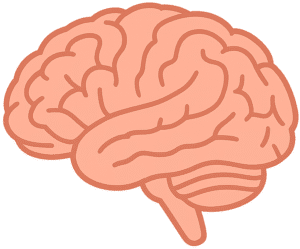Hey, it’s Chris. Last week, we looked at the big picture. (If you want a reminder you can read the previous newsletter here) You might’ve felt yourself lean in. But here’s the twist: Let’s talk about that. You know the moment. You’re scrolling Reddit. “I do it because I learned to survive that way.” Your brain lights up. And then? Nothing changes. You still say yes when you mean no. Only now, you’re doing it with awareness. But you still do it. Why? Because the pattern didn’t break. The Awareness Trap When you name a pattern, the system doesn’t dissolve. It stabilises. “Ohhh… I people-please because of that thing.” Translation: I am now the one who understands my people-pleasing. This is seductive. Especially if your brain is wired for loops. Your insight becomes your new identity. You become “the person who’s working on it.” This isn’t change. CLINICAL BRAIN SNACK When the self names a loop, it creates a secondary stabiliser... a new role: the one who noticed the loop. Julian Jaynes referred to this as metaphor fusion. In developmental psychology, this is echoed in identity homeostasis. So when a cognitive-emotional pattern is finally “seen,” the act of seeing it becomes the new self-narrative. It feels like change. It’s recursive inertia... where the performance of growth replaces the experience of it. Until the system is interrupted structurally, nothing really shifts. Interrupt the Role, Not the Pattern Let’s use an example. Hypothetically, lets say you struggle with overeating. You understand it. So instead of analysing it again, and again, and again… Not random. Here’s why: Climbing gives you something bigger to orient around. It presupposes different habits: Suddenly, you’re not someone “struggling to eat less.” It's simply who you are and it wouldn't make sense to do otherwise! The food loop isn’t fixed. Because you chose a story that doesn’t include it. You leave the old narrative hungry. Wanna test it?
And when the old voice returns... confused? Just smile. Did this crack something open for you? Hit reply ~ Chris P.S. You’ll see what I mean. |
Like What You Read?
Here's how to get more:
Join a growing list of overthinkers, misfits, and mental explorers learning how to rewrite the stories running through their heads.
Learn how to break out of your mental loops and feel human again.
Fresh insights. Delivered weekly.

